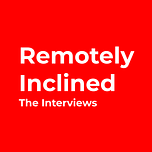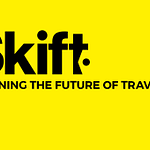Hi,
Welcome to Remotely Inclined, a newsletter about running a business remotely. If you’d like to sign up, you can do so here. Want to share your feedback? Respond to this email (or send me one). Or just read on…
Sharon Koifman has been running businesses remotely for 18 years, and now he helps companies around the globe hire full-time remote workers with his agency DistantJob. He’s also publishing a book, Surviving Remote Work, all about how to become the best possible remote employee (or manager). In our interview, Sharon shared a couple lessons he learned the hard way - namely, why CEOs should never try to be their company’s social centre.
The perils of CEO-driven company socializing
→ When Sharon first started DistantJob, he went remote as a matter of cost: no office expenses and geographic arbitrage on salaries. This was also the value he thought he was offering to clients - a cheap talent solution.
→ He soon realized the paradox that if you see humans as simply outsourced cheap labor, they won’t perform as well for you. He switched his mentality - and DistantJob’s work - to focus on placing full-time remote employees.
→ As a result, he immediately tried to become what he called the “social centre” of the company. He’d bring everyone together for Zoom happy hours and crack jokes. The feedback was dismal: no one was having fun.
Remaking socializing for remote work
→ After collecting feedback from employees, two themes emerged: they didn’t like that Sharon was driving all the company social activities and they didn’t like being forced into big digital groups. Both resulted in feelings of disengagement.
→ As a result, the company revamped how it socialized:
The company uses Donut, a Slack app to match people for 1-1 coffee chats.
Further leveraging Slack, there are different channels for different kinds of socializing and fun, so people can pop into the “rooms” they are interested in - food, board games, etc.
The company is “99.999%” remote, but will occasionally get together around conferences (back when that was possible) - this allowed the team to socialize at night but also learn and connect with the latest industry trends during the day.
The final word
“When you have too many people in a physical or zoom meeting, the majority of people don’t get invested in that meeting. But when you have one, two, or three individuals … you can really get to know them.”

Image courtesy DistantJob
Remotely Inclined Chats with Sharon Koifman
Transcript edited for brevity and clarity.
Stefan: Welcome, Sharon! Can you share how you got into remote work and what your company DistantJob is all about?
Sharon: I’ve been running businesses from my computer for about 18 years. I started off running a web hosting company - and I’d even started a company before that where I was trying to create one of the first music distribution sites, though unlike Napster it would all be legal.
I didn’t really have money. So when I decided to find myself, I was sharing my hosting account with a few colleagues of mine and charging them. Next thing you know, we had about 3,000 clients and that music site never came to be.
So hosting became my first company. We had offices in India. Had our servers originally in Texas then moved to New Jersey. I was sitting by myself running this entire operation. I realized my dad inspired me a lot because he ran an engineering firm. He would do the design of the machine on AutoCAD, on his computer by himself. The machine shop would make the components, someone else would ship it to the client… again, it was all remote.
Then came DistantJob. The original concept came to me from the first business - when you have an office in India, you have to do some outsourcing. It’s unavoidable. But for me that was like a business sin. You’re getting paid for the way you’re doing things, your processes, and your methodology. But then you take everything you claim you have and you give it to a company which you have no control over. You don’t know their processes. You don’t know if the results will come in the way you want. It was pretty shocking for me. I didn’t understand why you couldn’t just hire somebody that will work on your processes and build your culture.
After I sold my hosting company, I realized the need for full-time, permanent, career-driven, focused individuals that are working internationally and remotely. You still have this massive advantage of going to the world and finding amazing talent, but back in those days for some reason people felt the only way to hire individuals was through outsourcing.
You’ve mentioned before that it’s not just about hiring someone, but actually helping them build digital relationships (colleagues and friends). How do you do that at DistantJob?
I came into DistantJob with the original focus of making a cheap solution. Then I realized that wouldn’t work - the world was too big. My mentality initially was that remote workers were less efficient, but then I realized they could be more efficient if you manage them.
Now, the way I approach it is to start with all the positive things about the office and see if I could replicate them. So instead of hanging out in person, turn on the video camera. Then you can start to know people on a personal level - getting to know their hobbies and such.
At DistantJob, we have a lot of Slack channels for different hobbies. We’re a big fan of food, nerdy stuff like video games and board games, and we have channels to joke around in.
You found virtual happy hours didn’t work - what happened? What do you do instead?
I remember my director coming to me and saying “I hear that people are not happy or having much fun.” I realized also that I was busy talking and doing all the entertainment. I was literally trying to entertain my team, make jokes, hang out, and be the social centre.
You slowly see that even though managers got the hint and tried very hard, it didn’t move the conversation along much. I’ve since had a much better experience one on one - intimate conversations. We still have drinks with one another, but now it’s two or three people and it works so much better.
I think this is reflective of meeting culture completely. When you have too many people in a physical or zoom meeting, the majority of people don’t get invested in that meeting. But when you have one, two, or three individuals, you can really get to know them.
We also use Donut on Slack, an app that randomly matches you with someone for one-on-one conversations for 15 minutes. That gets better results than a big happy hour experience.
We’re also completely remote. Once in a blue moon I’ll hang out with my managers, but that’s a big project and it means a big investment on flights in. We usually do it around conferences, so it’s an opportunity to see the market while taking the evenings to hang out. But 99.999% of what we do is remote.
In the remote world, there’s a huge conversation about pay vs. geography. What’s your opinion?
This is a very conflicting discussion because I’m a little bit on both directions at this moment. I pay what I can afford to, but I am a big fan of the geographic arbitrage solution on an ethical side, surprisingly. Take for example India. They’re known for outsourcing (the grandparent of the remote job experience).
One of the biggest things that you’d outsource to India or the Philippines was a call centre. You’d go there because it was cheap. But the jobs you brought helped the economies evolve, and now a call centre is only 15% cheaper there than it is in the United States. As a result, some jobs are coming back to the United States. It’s crazy - give it 10 years to let those economies evolve and the jobs are coming back while you just created half a billion jobs somewhere else.
Now, I don’t know about producing shoes in child labor camps in some backwards-ass countries. I’m very much pro building successful, intelligence-based jobs.
You’ve just written a book based on your 18 years of remote CEO experience! Tell me more about it.
The book is called Surviving Remote Work - it’s all about getting people comfortable with (and not fearful of) managing remote employees. It’s about figuring out the optimal ways of success for remote employees and remote managers. And I hope I wrote it in a fun, easy to read way.
Amazing, thank you for your insights!
You can get in touch with Sharon via email or pre-order his book on Amazon.













Share this post